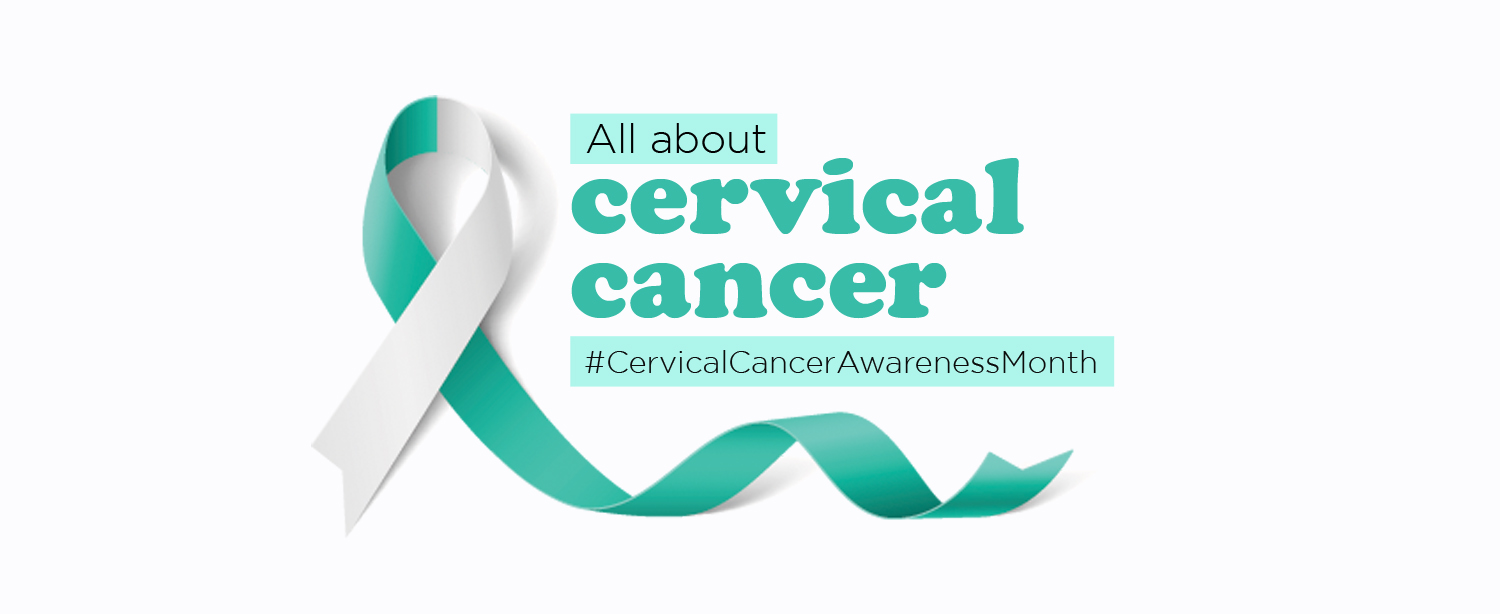India is responsible for roughly one-third of all cervical cancer fatalities worldwide, with 122,844 cases diagnosed each year. According to the Globocan 2020 report, cervical cancer affects 18.3 percent of Indian women. Due to lack of awareness, hesitancy, or restricted access to medical services, only a small percentage of women in India are screened for cervical cancer. Cervical cancer is one of the most successfully treated cancers once diagnosed, as long as it is detected early and managed effectively. The month of January is observed as “Cervical Cancer Awareness Month,” with the goal of raising awareness about cervical cancer prevention, screening, and treatment.
What is Cervical Cancer?
Cervical cancer happens when cells change in women’s cervix, which connects the uterus and vagina. The human papillomavirus (HPV) is the most common cause behind cervical cancer. There are around 100 different forms of HPV, with about 14 of them being high-risk cancer-causing strains. Most HPV infections in women clear without any intervention within 2 years. The high-risk strains of the virus can survive in the body for up to two years, integrating with cells and progressing to cervical cancer. Early detection requires regular screening.
Symptoms of Cervical Cancer
A person may have no symptoms at all in the early stages of cervical cancer. This makes regular pap smear tests even more essential. A pap smear test is a preventive measure and it not only helps identify the disease, but also reveals any cell alterations that may signify the onset of cancer so that treatment can begin sooner. Here are some of the most common signs of cervical cancer:
- Pelvic pain.
- Bleeding between periods.
- Bleeding after sexual intercourse.
- Bleeding in post-menopausal women.
- Vaginal discharge with a strong odour.
- Discomfort during sexual intercourse.
These symptoms may also happen due to other underlying health conditions. Consult a gynaecologist for further investigation and care.
Risk factors for Cervical Cancer
Here are some risk factors that increase your risk of getting cervical cancer:
- Multiple sexual partners.
- Early sexual activity.
- Use of contraceptive pills.
- Other sexually transmitted infections (STIs).
- A weakened immune system.
- Smoking.
How can you Prevent Cervical Cancer?
Based on your age, overall health, and personal risk for cervical cancer, you can take some precautionary measures to reduce your risk of getting cervical cancer. Work with you gynaecologist to know more about these preventive measures:
- Be regular with pap smear tests
A Pap test is your first line of defence against cervical cancer. During a pelvic exam, your gynaecologist will take a sample of your cervical cells to look for ones that could become cancer. - Get an HPV vaccine
Vaccines can help protect children and young adults against certain HPV infections. - Practicing safe sex
Limiting sexual partners, using condoms and abstaining from sex at early ages helps limit your risk of cervical cancer. - Not smoking
Quit smoking to reduce your risk of cervical cancer.
Cervical Cancer: Myths and Facts
There’s a lot of misinformation about cervical cancer, let us clear the most common myths and facts about this condition:
Myth: If you have HPV, you will surely develop cervical cancer.
Fact: There are over 100 different strains of HPV, some of which are associated with a higher risk of cervical cancer than others. HPV-16 or HPV-18 are responsible for over 70% of HPV-related cervical cancers. However, most genital HPV infections, do not result in cancer.
Myth: Cervical cancer only occurs in less developed countries.
Fact: Cervical cancer affects people in all countries worldwide. However, due to lack of regular screenings and early care, it is more common in less developed countries.
Myth: I’ve received the HPV vaccine, so I don’t need Pap tests.
Fact: Regular Pap tests are still necessary for everyone who have had the HPV vaccine. The vaccine protects against some types of HPV, but not all of them, making regular screenings essential.
Myth: Pap smear screening checks for all gynaecologic cancers.
Fact: That is not true. The test does not screen for other gynaecologic cancers such as ovarian cancer and fallopian cancer, it tests only for cervical cancer.
Cervical Cancer Treatment at Kokilaben Dhirubhai Ambani Hospital
Our Centre for Cancer offers comprehensive cancer care for the prevention, screening and early detection of cervical cancer. The team of highly trained oncologists and onco-surgeons offer specialized cervical cancer care and are supported with advanced technology. Our team of doctors provide compassionate care and multi-modal treatment options for cervical cancer that include medical therapy, chemotherapy, radiation therapy, surgery, etc. Please find below our website details for further information: https://www.kokilabenhospital.com/departments/centresofexcellence/centrefor_cancer/gynecologicaloncology.html


